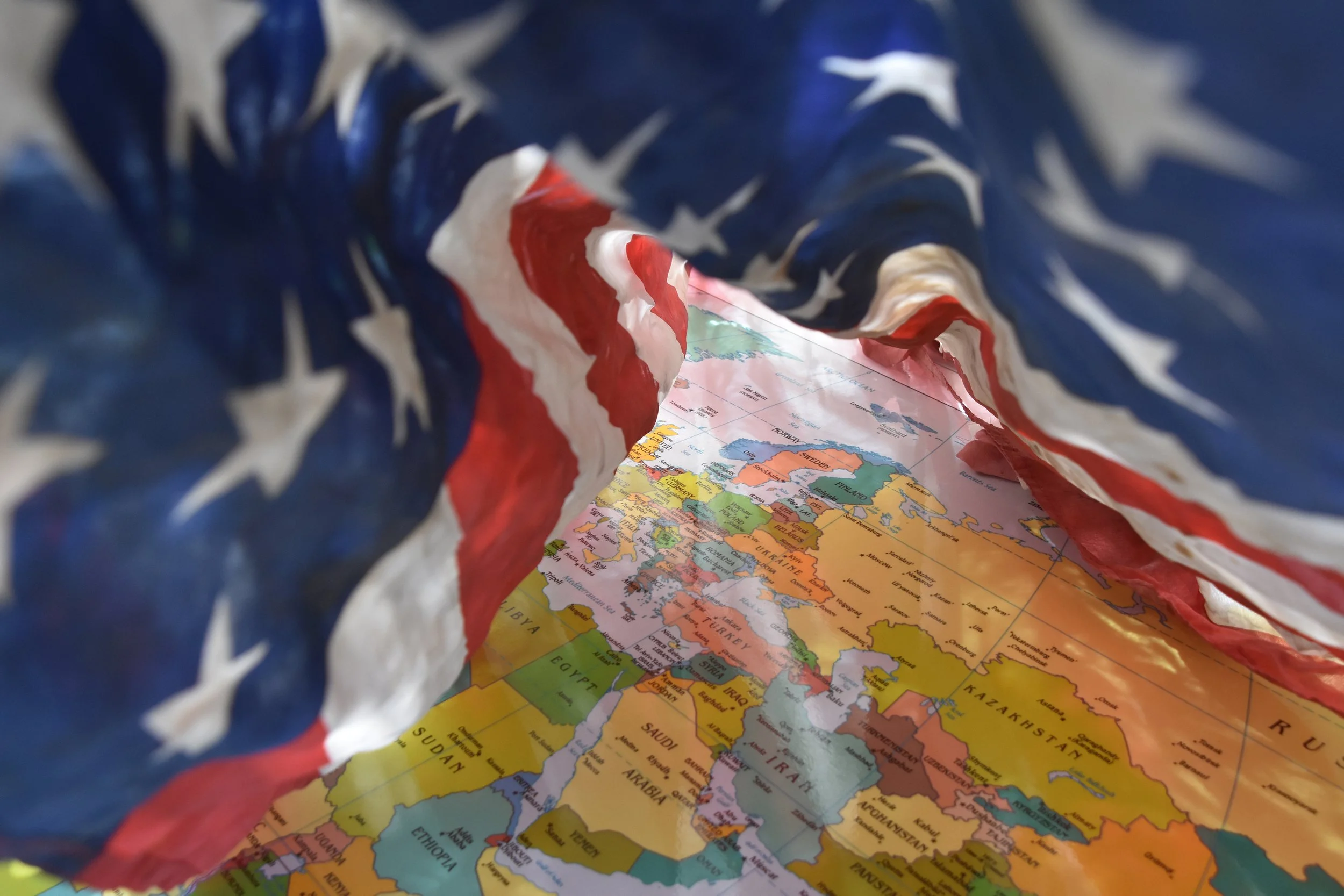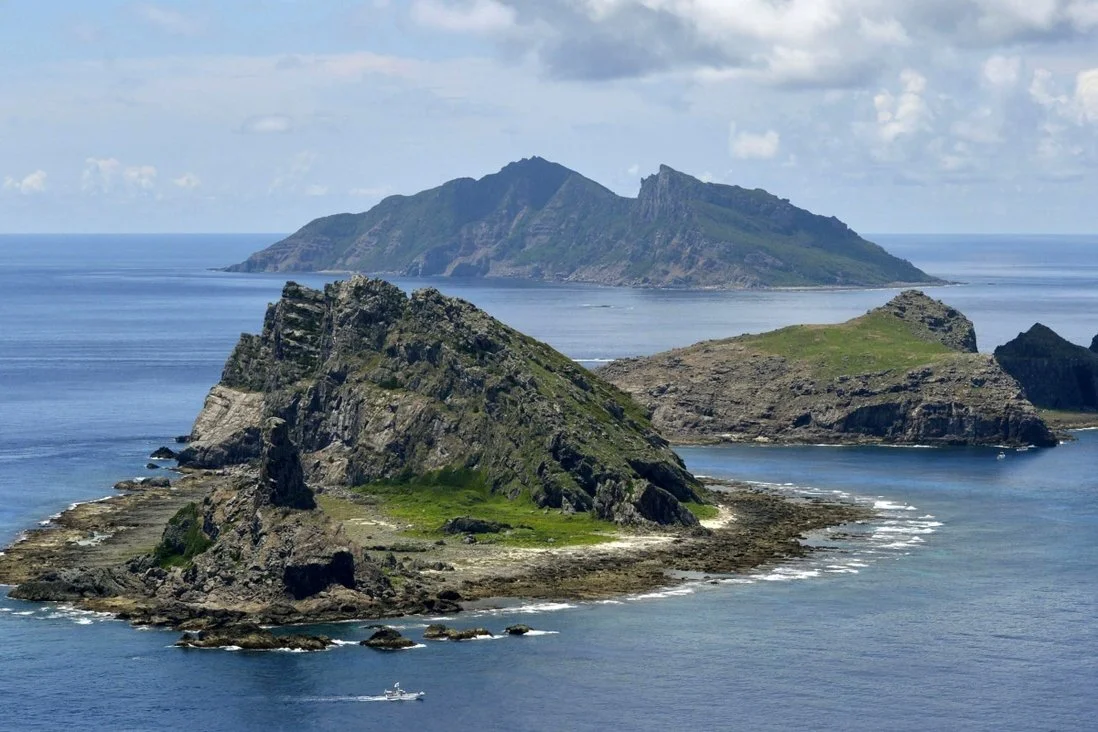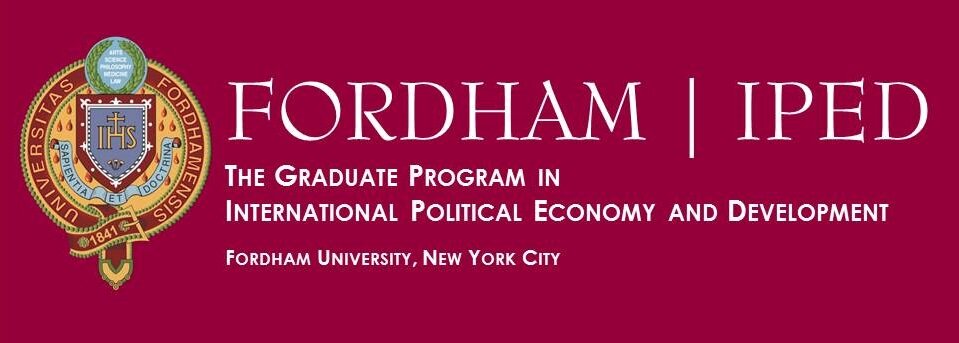Welcome to the Sigma Iota Rho Online Journal of International Relations
The Sigma Iota Rho Journal of International Relations (SIR Journal) is one of the nation’s premier undergraduate journals of international studies. SIR Journal offers undergraduates the chance to share their research and findings in topics like economics, politics, history, and area studies with other scholars and students throughout the country. The Journal is produced entirely by undergraduate students, and each print article is carefully chosen from numerous outstanding submissions from undergraduates nationwide.
*From November 1, 2022, the posts previously under BLOG are listed under OPINION. The post URL for those articles previously under BLOG will change from http://www.sirjournal.org/blogs/… to http://www.sirjournal.org/op-ed/…
This article argues that U.S. sanctions on Cuba, driven by geopolitical interests, have caused widespread humanitarian harm rather than advancing human rights. It calls for reforming the global human rights system to ensure fairer, more inclusive enforcement.
This essay argues that human rights are better upheld through moral responsibility and community action than through flawed legal systems. It critiques the Western individualism of the UDHR and calls for a more inclusive, empathy-driven approach to justice.
The WTO has become obsolete and irrelevant. It is in the interest of the WTO and all its member states to reach an agreement on the negotiations to gain back the relevance and legitimacy they have lost over the years. Reaching a consensus on an agreement in the fisheries subsidies negotiations would be a big win for the WTO and could bolster its legitimacy.
Developing countries face pressure to accede to the whims of developed countries. Through leveraging international law, developed nations are able to force developing nations to conform or face resistance. The United States Millennium Challenge Corporation and Nepal is a latest example of this trend. If developing countries want to protect themselves, they must reform international law to balance the representation of interests.
Despite its unchecked political, military, and economic power, the U.S. struggled to orient its foreign policy within the post-Cold War international order. However, September 11, 2001, catalyzed a retooled U.S. foreign policy. The U.S. retooled its fundamental identity after undergoing the process of Oriental Hybridity, then demonstrated this identity through episodes of foreign intervention during the Bush and Obama administrations.
The recent elite campaigns are shifting the National Resistance Front of Afghanistan’s foreign policy and shaping the public opinion about its goals. Whether these efforts will eventually lead to a Balkanization process is largely dependent on the strength of the Front and its ability to gain the trust of foreign actors. While none of the foreign powers recognize the Taliban’s government, Tajikistan’s approval of the NRF indicates a move towards increased support for the Front.
Even though the establishment of an EU army would be practicable, its actual utility would be minuscule. Its utility would lie in its strength as a symbol. It would show the Europeans that they have the capability of projecting not just diplomatic or economic influence, but also military influence. The act of assembling a functional pan-European military force would enable the member states to cross a mental bridge that restrains them from genuinely projecting their collective power.
The United States cannot force ASEAN to pick a side. What the United States can accomplish is to respect the organization’s neutrality and work with ASEAN partners to negotiate a trade deal. The new trade deal must be adaptive to the current situation in Southeast Asia where there are countries that are not democracies and countries backsliding from democracy. Applying strict western values and obsolete international norms which take a deep root in racism and colonialism will not narrow the gap between the United States and its Southeast Asian partners. Not having a US-ASEAN trade deal would mean an increase in China’s influence and downfall of the America’s Indo-Pacific strategy.
The September 27th skirmish between Armenia and Azerbaijan portended a disruption to the former Soviet order in the Nagorno-Karabakh region. Thousands of soldiers’ deaths coincided with deteriorating Russian hegemony in Southern Caucasia and expanding spheres of influence for middle-powers such as Turkey.
The delayed summer 2020 Olympics are expected to start this July, but Tokyo’s path to hosting the Olympics successfully and safely during a pandemic is turbulent. The Olympics were seen as a ray of hope for normalcy in the world, but as we edge closer to July, it becomes clear that the pandemic may have greatly changed the cost-benefit matrix of hosting the games.
since its inception, Kurdish nationalism has come into conflict with those countries that house a Kurdish population and would stand to lose territory to a Kurdish state. The competing interests of Kurdish nationalists and the states in which Kurdish communities reside had led to a multi-decade conflict involving periodic rebellions, state repression, and long running guerilla conflicts, especially in Turkey.
Amidst the acceleration of vaccine nationalism and the race to obtain vaccines, China stands out with its rapid production of Chinese vaccines and enthusiasm to share their vaccines, especially with developing countries. Should China’s philanthropy be acclaimed or questioned? What should countries do to prevent the politicization of vaccines?
The Global Gender Gap Report 2020 ranked Iceland as the “most gender-equal country in the world for the 11th year in a row,” based on factors of economic participation and opportunity, educational attainment, health and survival, and political empowerment. Iceland has been the most successful in increasing the presence of women across parliament, ministries, and heads of stat.
The September 27th skirmish between Armenia and Azerbaijan portended a disruption to the former Soviet order in the Nagorno-Karabakh region. Thousands of soldiers’ deaths coincided with deteriorating Russian hegemony in Southern Caucasia and expanding spheres of influence for middle-powers such as Turkey.
Territorial disputes are one of the leading causes of diplomatic tensions in East Asia. The Diaoyu/Senkaku Islands dispute, one of the tensions plaguing the region, involves two of the world’s biggest economies: China and Japan. At first glance, the uninhabited islands, composed of five small islands and three rocks, seem to hold no obvious value. However, the disputed islands continue to be a part of an ongoing diplomatic crisis in East Asia.
Throughout the 20th century into the 1960s, at least 90 percent of all Latin Americans identified themselves as Catholic.[1] Protestant denominations were small, frequently represented by anti-establishment street preachers without any large-scale and well-organized institutions.[2] Today, this kind of Catholic domination is a thing of the past. In the last few decades there has been a spectacular increase in Protestant Christianity across Latin America
Since the beginning of the pandemic, Americans have watched with acute focus as COVID-19 has closed local businesses, cut family holidays, and cornered in-person education. Each of us has been affected as the world has descended into the year of 2020. But for refugees living in camps, these changes are even more life-threatening — and government responses have ranged from barely adequate to blatantly inhumane
Though universal jurisdiction harbors much ambiguity and variance, inspection of this interaction between South Africa and Zimbabwe with theory and comparable history sheds some light on its utilization by other states in the international community. Implementing international relations theory, social constructivism explains when states prosecute under principles of universal jurisdiction, and its analysis in the context of sovereignty norms and realist power reveals variation in success.
Despite the sudden resignation of former prime minister Shinzo Abe, the appointment of Yoshihide Suga as the new prime minister restored the confidence of Japanese citizens in their government. However, there remains some concerns about Japan’s foreign policy directives.
On July 12th, the Polish people re-elected incumbent President Andrzej Duda for a second five year term. The hotly anticipated election has led to divergent opinions on what the results indicate not only for Poland, but for far right nationalism in Europe as a whole.
The current pandemic is central to the price war’s narrative. In January, China suffered a major demand shock as it went into lockdown. Consequently, Chinese oil refineries cut their output by about 1.5 million barrels per day (bpd), leaving Very Large Crude Carriers (VLCC) stranded off the Chinese coast as local oil storages were crammed. This volatile oil climate in China, the world’s largest energy importer, sent off an alarming signal to the oil-exporting nations.
Chinese coffers have created dangerous security implications for the region. Beijing uses financial muscle to exercise broader security goals, namely quelling Muslim dissent. China has successfully extended its surveillance regime in Xinjiang, where there are numerous Kazakh and Kyrgyz prisoners, to its backyard in Central Asia.
Has the Cold War era NAM become obsolete for India and the developing world? And, given the transformative impact of the pandemic on the global order, what would be the NAM’s role in the post-COVID world?
The Singapore’s model and Australia’s model, TraceTogether and COVIDSafe, are exemplary contact tracing apps that not only secure user’s identity via a convoluted encryption system but also fulfill the purpose of alarming people who are at high risk of infection. Although technical operations may vary from app to app, both apps largely work on a decentralized mechanism that allows data to store locally on users’ phones and can only be accessed by authorized agencies with users’ consent. Therefore, it is not a matter of whether health vs. privacy a zero-sum game, but under which circumstance the app becomes effective.
As the “Recovery Olympics” would not have miraculously cured COVID-19, Abe’s ‘readiness for the Olympics’ should have been manifested differently than mere concealment of COVID-19. They could have coexisted if only Abe had taken enough time to contemplate the policies of sophisticated inter-sectoral cooperation and efficient utilization of domestic resources.
After four years of back-and-forth negotiation, an emboldened UK is looking to turn the tables on a beleaguered EU. While nothing is certain with the pandemic looming over most political questions, the general trajectory is clear. The UK has the strong bargaining position they need to pursue the privileged mix of economic access and political sovereignty Brexiteers have long sought after.
This essay examines Mexico’s femicide crisis and why it endures despite legal reforms. It argues that machismo, impunity, and police negligence continue to block progress. While femicide is now federally recognized, ineffective investigations still fail victims. Grassroots movements like #NiUnaMenos have shifted public awareness, but meaningful change under Claudia Sheinbaum’s leadership will require systemic reform, cultural change, and sustained public pressure.
This essay will discuss how climate change was not always a solid Democrat issue. I discuss pioneering conservative ideas to environmentalism to show that the Republican party could again embrace it. Even if Republicans will not consider that political strategy, climate change is becoming such a pressing issue that, at this point, Democrats should work together to encourage Republicans – if the Republican party can “dump Trump” – to introduce new legislation to combat climate change, even if that means gambling with the possibility of losing elections, because the stakes are so high. A Republican-led climate change initiative might just be only way the country finally leads the world in an effort to fight climate change.
The Ladino/Criollo population in Guatemala have been disregarding the native indigenous groups in the country since colonial times. This continuous and persistent indifference has caused a deep resentment in the native population. The social and economic marginalization experienced by the Maya in Guatemala and the dismal lack of resources afforded to their communities have, understandably, contributed to ignite rebellious movements looking to carry through political change. This type of uprising occurs all over the world. However, what is different in the case of Guatemala is that Maya leaders are including a cultural component to their political agenda. In order to combat the pervasive corruption and discrimination that has affected their communities for centuries, instead of trying to conform to the Ladino/Criollo cultural assimilation agenda, the recent movements look to incorporate in their demands— besides the traditional demands for land rights, political recognition and improvements in the education system— that their Mayan identity be respected by promoting the use of their native languages.
The European Empire, published in 2016, is a book by Josep M. Colomer, a professor of Political Economy at Georgetown University. The objective of this book is to discuss the current dilemmas facing Europe, while highlighting the successes and the shortcomings of the European Union (EU).
The Middle East, shrouded in myths that fail to truly grasp its cultural complexity, is a product of the post-colonial world and is plagued with superficial assumptions about its conceptualization as an unstable and violent region. Nathan Thrall, in The Only Language They Understand, and Mohamed-Mahmoud Ould Mohamedou, in A Theory of ISIS, attempt to create a cohesive narrative about the Israel-Palestine conflict and about the Islamic State, respectively.
Steven Cook, in his book False Dawn, falls into this trap by asserting that the uprisings during the Arab Spring were inevitably going to fail without fully analyzing the importance of each of the protests to the Arab people and by only truly consulting the perspectives of Washington policymakers, think-tanks, and commentators.
At meetings with the Ministry of Defense and Ministry of Foreign Affairs, I learned that Qatar is proud of its friends-with-everyone approach and seeks to play a mediating role even in conflicts in which it is not directly involved. The U.S.-Taliban deal was not the first instance of Qatar facilitating peace and compromise. In 2008 Doha hosted negotiations to end a political crisis in Lebanon that had spanned over a year; just before that, Qatar had facilitated talks between the Yemeni government and the Houthi rebels. This behavior has raised Qatar’s international profile and become a hallmark of its foreign policy.
Travelers, in my opinion, are voluntary diplomats, recognizing the weight of their actions and words for how others see their home country and its people. Voluntary diplomacy means opening up to new people and experiences, even when it isn’t easy.
“Shabbat shalom!” “No thank you” I replied with a bashful smile, assuming that people on the street were trying to sell me something. While the confused looks clued me in that something was strange, I failed to realize that the strange thing was me until hours later when the pieces came together: Shabbat is the Sabbath and the phrase is simply a friendly greeting. As the individuals I came across on the streets of Tel Aviv, Israel on that Friday morning likely deduced, I not only did not know any Hebrew – I am also not Jewish. After filtering through the usual questions – you’re American? (Yes.) Are you on birthright? (No.) Are you Jewish? (No.) – there was inevitably some confusion as to why I was in Israel.
Just shy of his 25th birthday, my great-uncle S/Sgt. Oscar Rome was killed when his B-17 was shot down by Nazi fighters over Yugoslavia. 73 years later, I visited the crash site in rural Slovenia and found that his sacrifice had become a symbol of American-Slovenian friendship.
"The country teaches you to find an inner strength. It is something you may not know exists, but is almost certainly present in all of us." While research on the dairy value chain was the professional culmination of her internship in Addis Ababa, Rachel Brock's personal experiences are what lastingly defined her summer in Ethiopia.
"Beijing is a particularly interesting place as an environmentalist. When daily life is directly affected by pollution, it becomes blatantly clear that something needs to be done. Urgently." Explore how Cynthia's summer spent as a policy intern at a Chinese environmental innovation center restored her hope for the climate movement.
Travel through Italy with Marco DiLeonardo's account of his study abroad experience in Bologna, and how his personal roots to the region enhanced his experience.
Negotiations strategies, dispute settlement methods, and how to end the war with Colombia's FARC rebels: University of Pennsylvania junior Teddie Levenfiche reflects upon his experiences interning in the Colombian Congress.























































This article critiques Trump’s push for a merit-based immigration system, arguing that it reinforces harmful myths about low-skilled immigrants and would worsen socioeconomic inequality. Instead of benefiting American workers, it mainly serves elite interests.